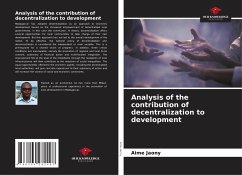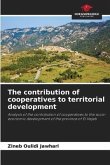Madagascar has adopted decentralization as an approach to economic development based on the increased empowerment of decentralized local governments, in this case the communes. In theory, decentralization offers several opportunities for local communities to take charge of their own development. But this approach has not led to the overall development of the nation. To be effective, the national policy of decentralization and deconcentration is considered the independent or main variable. This is a prerequisite for a shared vision of progress. In addition, three critical conditions are inescapable, namely the promotion of regional and local fiscal consent, autonomy of financial action and multi-faceted integration. The improvement felt at the level of the inhabitants through the realization of local infrastructures will then contribute to the reduction of social inequalities. The equal opportunities offered to the economic agents, including the decentralized local authorities, will give concrete expression to their autonomy of action and will increase the control of social and economic constraints.








